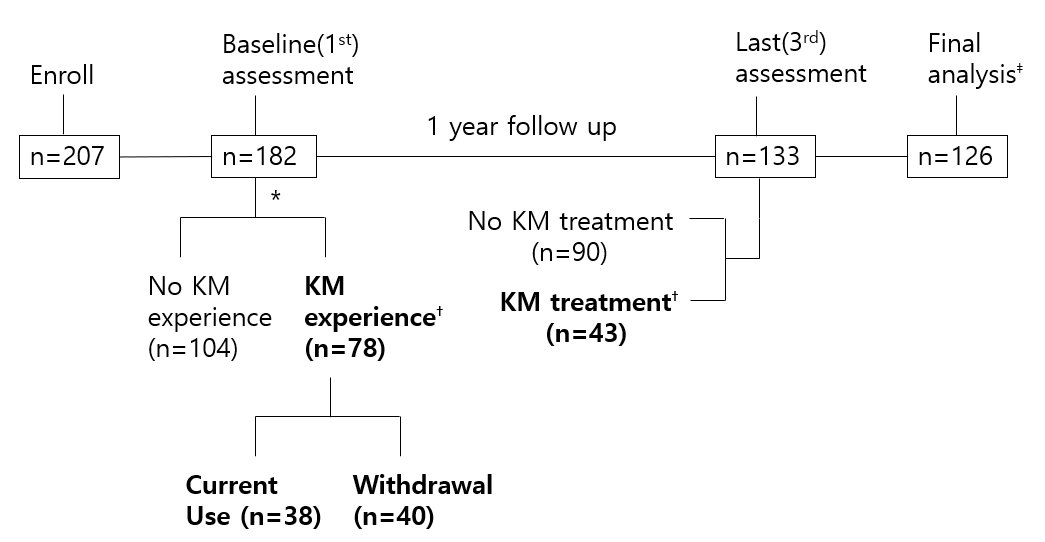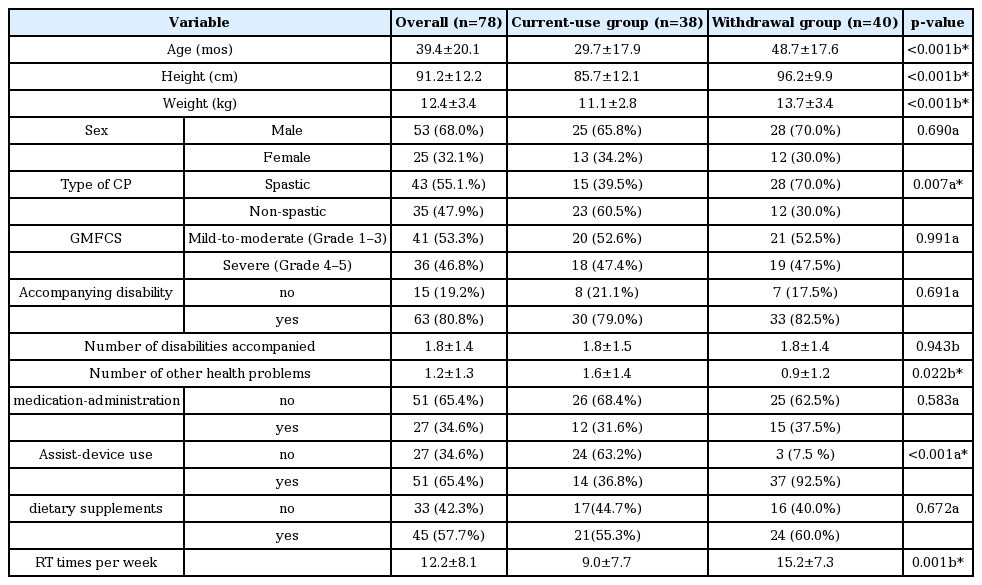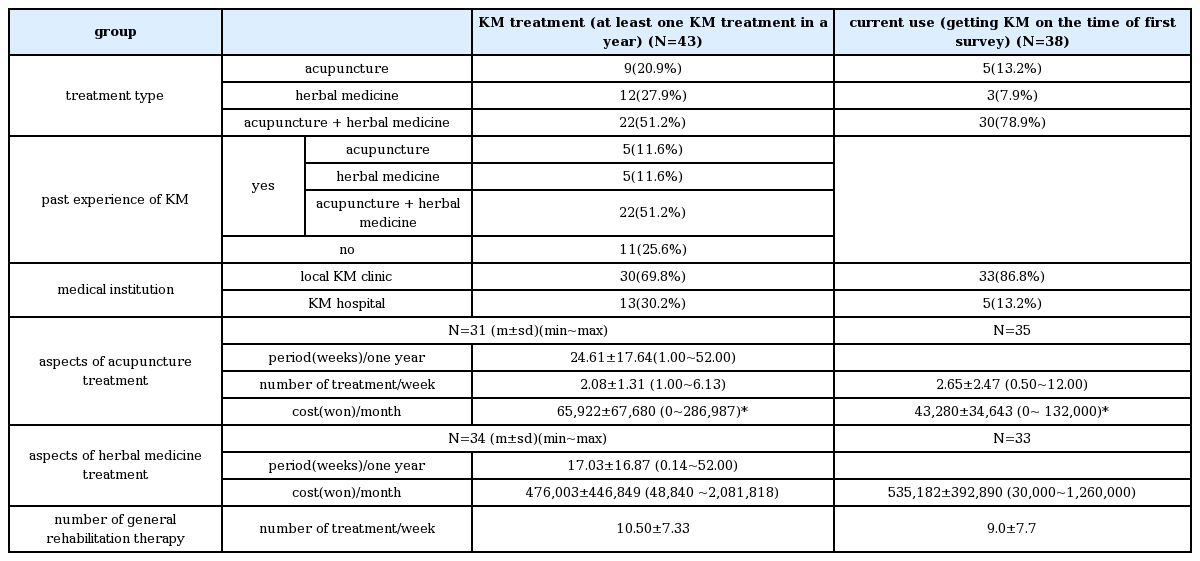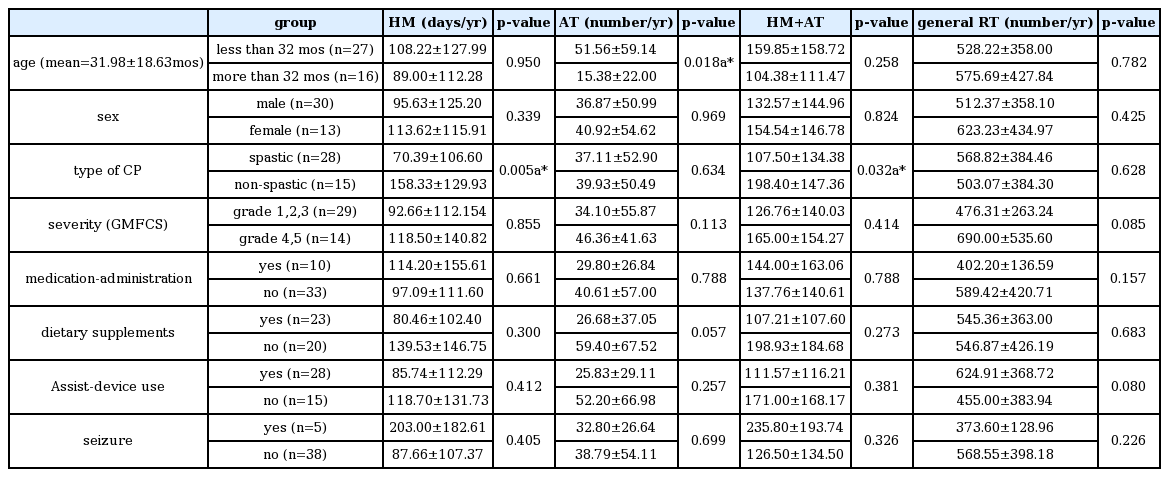Analysis of Korean Medicine Treatment in Children with Cerebral Palsy
Article information
Abstract
Objectives
The purpose of this study was to analyze the aspects of the Korean medicine (KM) treatment among children with cerebral palsy (CP) according to the disease characteristics.
Methods
In a prospective observational multicenter study for children with CP, we analyzed 78 baseline questionnaires of children having experience of KM treatments such as acupuncture and Korean herbal medicine and 43 follow-up data of children who have received KM during the one observation year.
Results
Of all the 182 participants, 38 children were currently getting KM treatment and 40 children have discontinued KM treatment. Children with non-spastic CP and more health problems tended to use KM. The most frequent reason for quitting acupuncture therapy was ‘suffering of children’ and the highest reason of stopping herbal medicine was ‘rejection of children’. Among the 133 participants finished one year follow-up, 43 children have received at least one KM treatment. The average number of acupuncture therapy was twice a week and the average monthly cost of acupuncture therapy and herbal medicine were 65,922 won and 476,003 won, respectively. Children under 32 month old have received significantly more acupuncture and children with non-spastic CP have taken significantly more herbal medicine.
Conclusions
Further study will be required to confirm the effectiveness of KM and increase the utilization of KM among the children with CP. More efforts should be made to increase the convenience of acupuncture therapy and herbal medicine and to expand the insurance coverage of KM for children with CP.
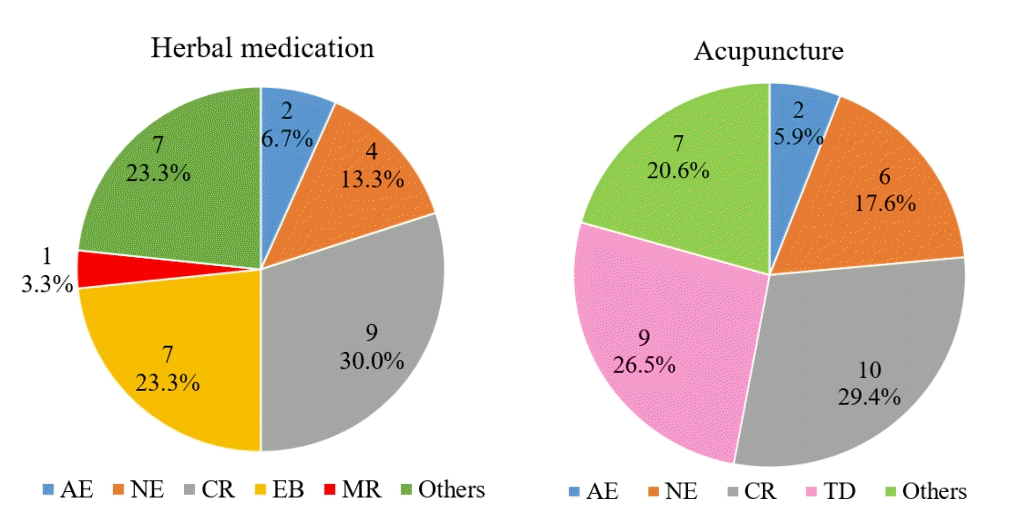
Reasons for Ceasing Herbal Medication or Acupuncture
AE, adverse events; NE, no effect; EB, economic burden; CR, child rejected; MR, medical reasons (other oral medication or doctor’s recommendation); TD, inconvenience of time and distance; this is the percentage of subjects who responded to the reason for the withdrawal (30 for herbal medication and 34 for acupuncture).
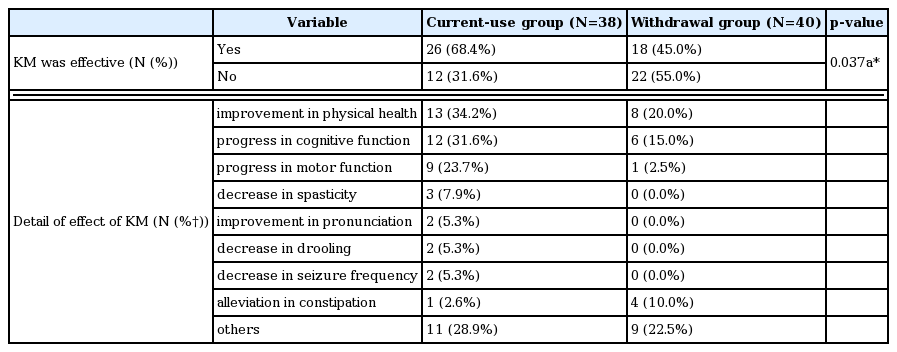
The Perception of the Parents Having Children with Cerebral Palsy about Effectiveness of Korean Medicine Treatment

